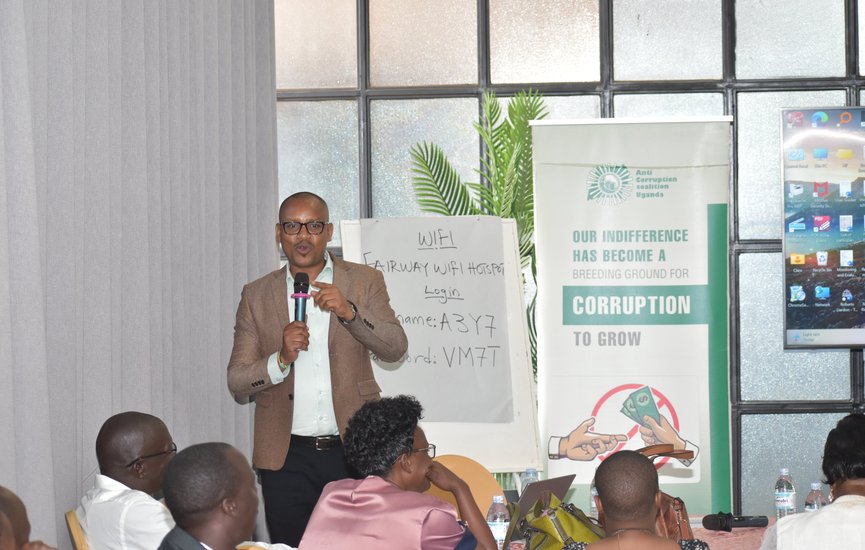The best gift a parent can give their child is education, a reminder from Ed Agaba Malon of the Anti-Corruption Coalition Uganda (ACCU), as the organization engaged stakeholders to discuss integrity and accountability within Uganda’s education sector.
Through its Youth Integrity Clubs, the Coalition is fostering a generation of students who value honesty, transparency, and responsibility, aiming to raise “adults of integrity,” as Malon put it. However, several challenges remain in realizing this vision.
Leah Mapesa, Project Head and a retired teacher, presented research findings from Iganga and Namutumba districts, which highlighted how curriculum delivery is hindered by a lack of materials, infrastructure, and digital tools. “At Namutumba Seed School, 600 students share just a few computers, and Kisiki College, with 2,000 students, faces similar shortages,” she said. “This inequality creates significant disparities in learning opportunities.”
The 2024 Office of the Auditor General Report revealed that the implementation of the competence-based curriculum—introduced in 2020 for lower secondary education—is progressing unevenly: 31% of institutions have completed the reform process, 16% are still in progress, and 53% have not started at all.
The slow pace of curriculum reform, limited access to computers, and insufficient teacher training continue to hinder progress.
The group called for expediting the implementation of the higher secondary curriculum by the National Curriculum Development Centre (NCDC) and recommended strengthening teacher training and digital readiness, developing online courses for teachers in remote areas, and finalizing syllabuses, assessments, and material distribution. They also discussed the TELA system—a digital tool for monitoring teacher attendance and performance. While designed to improve accountability, the system faces challenges, including unreliable power, limited charging stations (only 36 out of 99 schools have them), and teachers lacking the necessary technical skills.
The salary gap between science and arts teachers was also highlighted as a source of fiscal strain, leading to increased pension obligations.
Meanwhile, the menstrual health crisis remains a significant barrier to education for many girls. Many schools in Busoga still lack adequate latrines, bathrooms, and changing facilities.
“You can’t talk about quality education when half the students don’t have a safe place to change during their menstrual cycle,” one participant remarked.
The Coalition urged the Ministry of Education and Sports, along with local governments, to implement the Menstrual Health and Hygiene (MHH) Framework, advocate for funding to improve sanitation, and fast-track the UPE policy to set standards for operation and maintenance.
With many seed schools in Namutumba operating without formal commissioning and overcrowded classrooms remaining a widespread issue, the message was clear—Uganda’s education system requires urgent reform, integrity, and efficient implementation to effectively serve its children.
